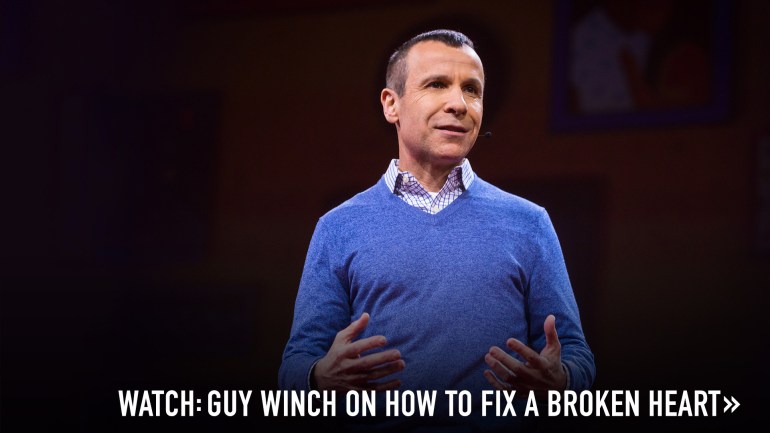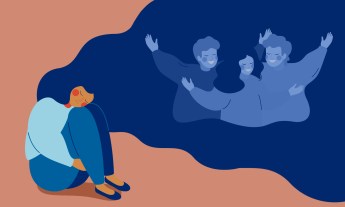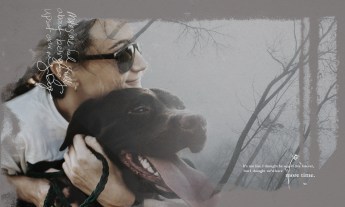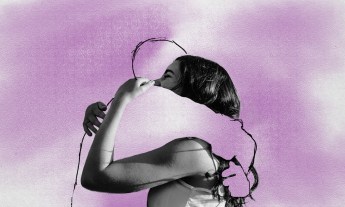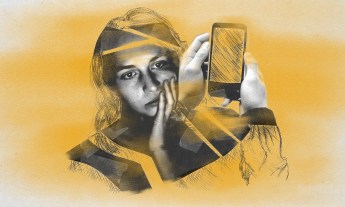
If we did, we’d all be kinder and more compassionate, both to each other and to ourselves when our hearts get broken, says psychologist Guy Winch.
I have worked with scores of heartbroken people over the past twenty years, and I remember many of them vividly. This is not surprising, as the ease with which we recall events is heavily influenced by their intensity, and the raw emotion and terrible anguish of a person whose heart just got broken is hard to forget. This is especially true when the patient sitting across from me is a teenager.
One teenage patient stands out in my mind because his story encapsulated almost everything that is wrong with how we currently regard heartbreak. Greg was a highly intelligent, gay seventeen-year-old junior who had recently come out at school — thankfully, to relatively little fanfare. Greg spent two years nursing a crush on Devon, a senior and one of only two other out gay kids in his school. A month after coming out, Greg finally gathered the courage to walk up to Devon during lunch and suggest they hang out. As happens far too often with teenagers, Devon’s rejection was both swift and unnecessarily cruel. Feeling humiliated and absolutely gutted, Greg made his way to his history class, in which he was scheduled to have a big exam. Greg’s best friend (who was straight) always sat next to Greg in history, and Greg hoped to have a few moments to talk with him and get support before the exam began.
But when Greg arrived in class, his friend was not there. As he later found out, his friend had twisted his ankle while shooting hoops during the lunch break. When the history teacher saw the swollen ankle, she excused him from the test and sent him to the nurse’s office. Alone and with no support, Greg spent the hour fighting tears while struggling to focus on his exam. Knowing he had done poorly, Greg approached the history teacher after class to explain why he had trouble concentrating. But instead of responding with empathy or compassion, Greg’s teacher chastised him for “making excuses.”
We desperately need a more open dialogue about how severely heartbreak impacts our emotions and functioning.
This is the message we’re sending high school kids about emotional versus physical pain. If your ankle swells even slightly, your physical discomfort will be noticed and you will be afforded both compassion and consideration. But if your heart gets ripped out of your chest and the emotional pain you feel is so severe you can’t even concentrate, you will be given neither. If this is how we educate our youth, is it any surprise that heartbreak is so poorly understood and that emotional pain is so often ignored? And if nothing in her schooling or training gave her any tools to deal with students whose heart just got broken, should we be surprised by Greg’s teacher responding as she did?
I am not advocating we excuse every teenager who claims to have a broken heart from taking exams. Given how frequently teenagers get their hearts broken, we would end up with more students sitting out exams than taking them. Yes, separating the normative psychological and emotional distress adolescents experience on a daily basis from an exceptional, urgent or acute situation is by no means an easy call. But Greg was not someone nursing his hurt feelings from a rejection or breakup that happened days or weeks previously. He was an A student, blinking back tears in obvious emotional pain.
We desperately need a more open dialogue about how severely heartbreak impacts our emotions and functioning. And for such discussions to be productive, we have to disavow ourselves of the notion that there is something childish, embarrassing or inappropriate about feeling severe emotional anguish when our heart is broken, because heartbreak is devastating, at any age. We suffer emotional pain that is nearly “unbearable” for days, weeks and even months on end. Our body experiences stresses that can damage both our short-term and long-term health. Our grief activates circuitry in our brain that causes withdrawal symptoms similar to those experienced by people who are addicted to cocaine or heroin. Our ability to focus and concentrate, think creatively, problem-solve and generally function at our regular capacity becomes significantly impaired. Our lives are thrown upside down, leaving us questioning who we are and how to define ourselves going forward.
Studies have found that when societies do not sanction grief, we internalize these standards and regard our emotions and reactions as less legitimate.
The fact that all this goes virtually unrecognized, if not entirely ignored by society, makes our ordeal far more challenging than it already is. Our friends and loved ones might offer us comfort and support but only for a limited time. Our schools, institutions, workplaces, and even our healthcare system fail to do even that (the kind actions of some individual bosses or employers notwithstanding).
What makes this state of affairs so unfortunate and truly unacceptable is that we are not fundamentally blind to grief. When a first-degree relative dies, especially if it is a spouse, parent or child, we are usually afforded time off, sympathy, compassion and a tacit understanding that we will not be functioning at our best as we grieve. Similarly, employers are likely to be at least supportive and sympathetic when we let them know we’re going through a rough divorce. Our grief, in such cases, is both recognized and sanctioned, regardless of its magnitude.
But other kinds of grief, such as the kinds of heartbreak we’ve explored here, are neither recognized nor sanctioned. They’re disenfranchised, regardless of how emotionally devastated we are. Not only are we robbed of support and compassion, we are forced to expend our dwindling emotional reserves to hide how bereft we feel, lest we be judged for being overly emotional, immature or weak of character.
By not affording employees the time they need to heal from emotional pain, companies are left carrying the burden of less productive workers.
My concern about how we marginalize these kinds of grief is not just a reflection of my work with heartbroken patients. Studies of disenfranchised grief — and there are many of them — have found that when societies do not sanction grief, we internalize these standards and regard our own emotions and reactions as less legitimate. This lack of external and internal validation has also been found to negatively impact our psychosocial health and increase our risk for developing clinical depression.
If emotional pain were visible, heartbreak and the suffering it caused would not remain disenfranchised for long. When we show up to work or school with a broken leg, arm, even a broken finger, we often garner more attention, concern and consideration, because people can see the splints or bandages, than we are likely to when our heart is broken. They are there as evidence that we hurt. And yet, broken bones inflict none of the profound cognitive, emotional and psychological impairments heartbreak does.
Most companies are hesitant to institutionalize allowances for “emotional health reasons,” short of major mental diagnoses, because they fear employees will unfairly take advantage of them. However, their assumptions are both short-sighted and misguided. By not affording employees the time and support they need to heal, companies are left carrying the burden of less productive workers who are functioning below their capacity for extended durations of time.
If schools accepted that emotional pain is just as important as physical pain, they could train educators to be more compassionate toward suffering students.
If companies recognized the debilitating impact of heartbreak and gave their employees time to grieve, get support and recover, it would allow employees to return to full productivity sooner than they might otherwise. Rather than hide our emotional pain from our fellow students and colleagues, teachers and employers, we could heal it more quickly and minimize our periods of compromised productivity. And if schools accepted the basic fact that emotional pain is just as important, legitimate and debilitating as physical pain, they could train their educators to be more supportive of and compassionate toward students suffering from heartbreak. There is no reason why we do not teach our captive audience of middle and high school students how to avoid the mistakes that make our emotional pain worse and how to adopt the habits that promote emotional health and healing. But we do not.
If emotional pain were visible we would all conduct ourselves very differently. We would find kinder ways to break up with the person we were dating, and we would be less cruel when rejecting people who expressed interest in us. We would show more concern when we saw someone sitting alone, an anguished look on their face. We would be more patient and less judgmental when a friend or loved one fails to get over a broken heart in what we consider a timely manner. And when our own heart gets broken, we would be more self-compassionate, feel less shameful about our distress, and be more open to asking for the help we need.
For now, though, we must remind ourselves that despite a lack of institutional support, we are not entirely defenseless against the assaults of heartbreak. There are things we can do –and things we should avoid doing — to ease our emotional pain, speed up our recovery, and heal the emotional and psychological wounds we suffered. Understanding what kinds of mistakes we must avoid and how to avoid getting stuck, and knowing what actions we should take and which habits to adopt in order to heal, means we are no longer at the mercy of the one curative ingredient over which we have no control: time.
We can help our hearts heal, and we can be more proactive and supportive in helping other broken hearts heal as well. Heartbreak is all around us. It’s time we open our eyes and see it, for only then can we truly heal it and move on.
Excerpted from the new book How to Fix a Broken Heart by Guy Winch. Reprinted with permission from TED Books/Simon & Schuster. © 2018 Guy Winch.

